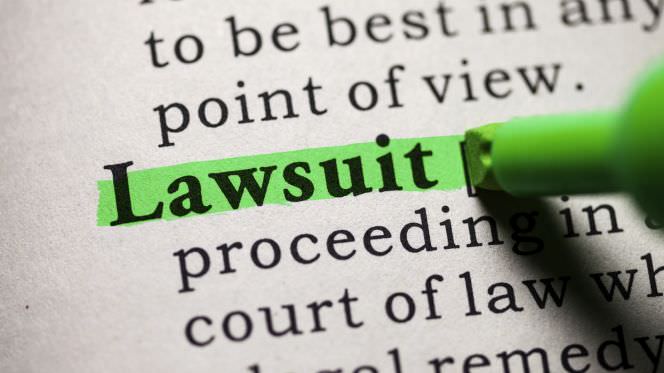It hasn’t been a “New year, new me” kind of 2016 for Volkswagen so far.
Following the company’s admission last September that it installed “defeat devices” on 11 million diesel-powered cars across the world to cheat emissions tests, things have gone from bad to worse. The German automaker faces dozens of lawsuits. Sales have plummeted. Last week the Department of Justice announced it’s going after VW for violating the Clean Air Act. Civil fines for that alone could reach nearly $20 billion. Criminal prosecutions and accusations of fraud could easily follow, costing many billions more.
More bad news came Tuesday when the California Air Resources Board rejected VW’s plan to recall and repair nearly 76,000 diesels with 2.0-liter engines sold in California between 2008 and 2015. (That’s a sizeable fraction of the 482,000 diesels VW sold in the US in that timeframe.) Those cars, according to the EPA, spewed as much as 40 times the legal limit of nitrogen oxide (NOx), which is linked to respiratory illnesses.
What this means is California—which can set emissions rules beyond those implemented by the feds—just told VW it isn’t moving nearly aggressively enough to clean up the mess it’s made.
The automaker’s proposal, submitted in November, was supposed to outline a plan to “expeditiously return the affected cars to the emission standards under which they were certified to operate.” The proposal is not available to the public, but The Wall Street Journal reports VW is considering retrofitting the cars with catalytic converters, which break harmful NOx down into nitrogen and water.
That plan “was not complete and is deficient for several reasons,” CARB chief Richard Corey said in a letter to VW. There’s not enough information for CARB to complete a technical evaluation of the plan, and the proposals “do not adequately address overall impacts on vehicle performance, emission and safety.” The EPA says it agrees with CARB’s decision.
The automaker has acknowledged wrongdoing and has apologized more frequently than Justin Bieber. But “it sounds like VW has been insufficiently forthcoming,” says Timothy Heaphy, a former US Attorney and the chair of white collar defense at Hunton & Williams. “They are cooperating, but have not been sufficiently transparent.”
This doesn’t mean there won’t be a recall, or that VW diesel owners will be left alone. It’s just going to take a while longer to figure out what to do.
“We do expect back-and-forth and there has been quite a bit of that,” says CARB spokesman Dave Clegern. “By putting this into an enforcement mode, we are simply able to look at options beyond just a recall. VW can come up with a sufficient repair and supply the information necessary for us to assess the viability, performance and safety of the vehicle before any repair is done.”
VW has other options. It could buy back the tainted cars, an unappealing and expensive solution. It could sell more electric cars in California to offset the illegal emissions, another expensive solution.
No matter what happens, Clegern says expediency is as big a priority as the fixes themselves. “The rejection was on technical grounds, and because the answers we received from VW lead us to believe that the process for resolution will take too long,” he says. “At this point, we are discussing options with VW and US EPA, which include a wider variety of potential remedies.”
From an institutional perspective, no one is tossing firebombs at VW because its initial plan got sent back. This problem is unprecedented in scope, so it probably would have been more surprising if the company had gotten CARB’s approval on the first try. What the agency wants is more specific info about how VW will repair nearly 76,000 cars fraudulently sold to California consumers—and fast. But industry observers say this first round refusal isn’t surprising.
“It’s obvious the EPA and CARB are seeking a very specific and comprehensive resolution plan,” says Kelley Blue Book senior analyst Karl Brauer. “Volkswagen’s initial plan didn’t satisfy the agencies’ requirements, but VW has stated repeatedly that it’s been in ongoing discussions with regulators. If they are already close to a workable solution we might get a finalized, approved plan tomorrow.” (VW is meeting with the EPA tomorrow.)
In addition to whatever revisions it makes to its plans for the 2.0-liter diesels, VW has until February 2 to submit a plan to deal with the 3.0-liter cars that also contained the illegal software. VW sold 10,000 such cars, which include Audi and Porsche models, in the US between 2009 and 2015.
For its part, the automaker is obviously trying to keep the focus on what comes next. “Volkswagen has had constructive discussions with CARB, including last week when we discussed a framework to remediate the TDI emissions issue,” says company spokesman Darryll Harrison. “Volkswagen is committed to working cooperatively with CARB and other regulators, and we plan to continue our discussions tomorrow when we meet with the EPA.”
Come February 2 we’ll see if those continued discussions produce a hole in one for their 3.0-liter fixes, or if VW customers will just have to keep waiting it out for official answers. But if you work for the company at a high level, the part that must really make you want to throw up is that working with CARB and the EPA is only step one. It hasn’t dealt with class action lawsuits, accusations of fraud, or criminal prosecutions yet. It cheated emissions tests all over the world, and regulators besides the EPA and CARB are going to come after the automaker. VW’s position going forward is the corporate equivalent of standing in front of a pitching machine—before it gets over the pain of one fastball to the chest, the next one’s on its way.
“It’s sort of like a game of whack-a-mole. When they resolve a matter with one entity, they will likely face many additional investigations all driven by the same facts,” says Heaphy. “The company will try to resolve these investigations as coherently and collectively as possible, but they will have to be more transparent to achieve that goal.”
Source: www.wired.com





Be the first to comment on "VW May Not Be Trying Hard Enough to Fix Those Diesels"